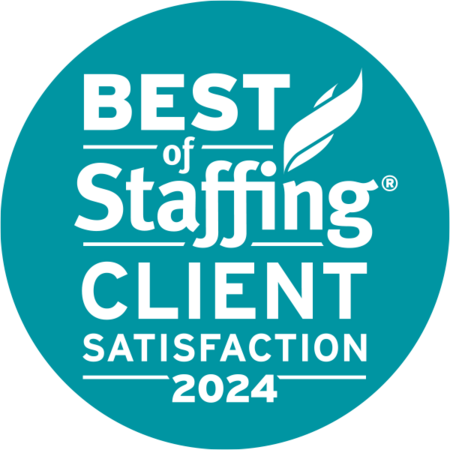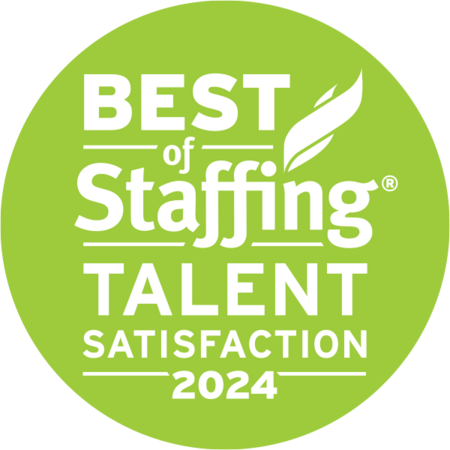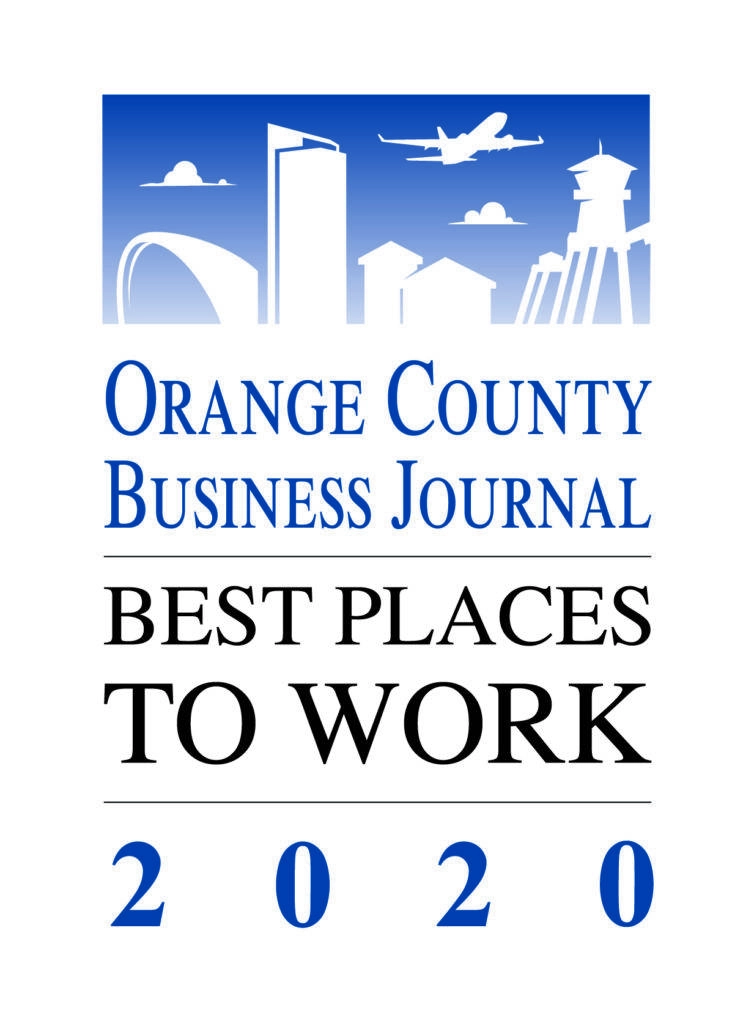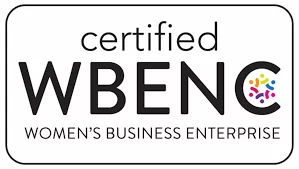Like all important skills, mastering a job interview takes practice and preparation. Interview experience leads to increased confidence and a greater chance of landing your dream job.
To help you nail your next interview, we’ve compiled our thoughts on the most important interviewing tips, including how to prepare, how to follow up and how to answer some of the most common (and challenging) interview questions in Accounting and Finance.
This practical guidance is designed for both novice and seasoned job seekers looking to up their interview game. Whether or not you’re currently looking for a new position, it’s a great resource for career planning and professional skills building.
Preparing for an Interview
Interviewing in a Persistently Strong Labor Market
With a scarcity of top talent in Accounting and Finance and historically fast job growth, now may be a great time for career transitions. But how do you stand out from the competition? Delivering a stand-out interview requires preparation. We can’t say this enough. Prepare for your job interview by researching the company, crafting responses and questions unique to that organization and open position, and working with a recruiter who knows the industry and can help align your key strengths with new opportunities.
Learn how to stand out in a hot job market.
Managing Your Mindset
Interviews can be challenging for everyone — applicants and employers. Being interviewed can be nerve wracking for prospective candidates. Likewise, conducting interviews increases the workload for hiring managers. Herein lies the key. Be mindful of the company’s motives and highlight your strengths to improve their bottom line. They need you as much as you need them.
As Ryan Holiday discusses in his book The Obstacle is the Way, George Clooney —long before he was a household name — was a struggling actor getting crushed in audition after audition. When he flipped his mindset, his epic Hollywood fame followed. Instead of worrying about what agents and directors thought of him, Clooney tackled each audition determined to provide a solution for the project. How liberating! No longer bothered with being liked, he focused on his craft and how it would influence a film’s success.
Take a cue from George — spotlight yourself as the main character in achieving progress and prosperity for your potential employer. You have the power to manage your mindset and turn that into positive results.
Telling Your Unique Story
Humans are hardwired to remember stories. When we hear a well-told story, our dopamine receptors fire up, endorphins get released, and our brain stores the information. What does this have to do with interviewing? Everything.
Interviews are opportunities to tell your story. It is your narrative — the better you understand it, the more eloquently it can be expressed. Be creative, courageous and concise. Leave an unmistakably positive impression on the interviewer’s mind. Understand (and be able to articulate) where you have been and where you hope to go next. Share personal anecdotes with purpose and clarity. And, never interrupt the interviewer to tell your story; trust that the appropriate moment will arise.

The Most Common, Yet Challenging Questions
“Why do you want to work here?”
What may sound like an easy question to answer requires a tactful response that will put you ahead of other candidates. Employers are particularly focused on this question in today’s hyper competitive job market. They want to ensure a new hire is serious about the position and committed to growing with the organization in the long term. So your response should be researched, planned, and rehearsed.
The most important aspect to focus on is communicating the skills, expertise, and experience that you have and how you believe those fit well in their environment. It not only tells the company why you want to join their team, but also emphasizes why they should want you.
Learn more about answering the question: “Why do you want to work here?”
“Why are you leaving your job?”
Another common yet difficult question to answer asks why you are seeking new opportunities. Hiring managers ask this question for three reasons. They want a lens into your career goals, to understand what job satisfaction means to you, and to ascertain whether you are leaving a company on good terms. With some self-reflection and forward-thinking, you can craft a powerful response that speaks to all three points.
Learn more about answering the question: “Why are you leaving your job?”
“What are your weaknesses?”
Nearly everyone dreads this classic interview question or its variation, “Tell me about a blind spot.” But with a little preparation, your answer can give you an opportunity to turn the question into an opportunity to showcase your strengths — or at the very least highlight your motivation and determination for self-improvement.
Hiring managers ask this question for two reasons: 1) to get to know you and 2) to see how you handle tough questions. It demonstrates how comfortable you are in your own skin. It can also highlight that you’re confident enough to answer the question with integrity while also having the EQ and basic intelligence to not say something that immediately disqualifies you.
Learn more about answering the question: “What are your weaknesses?”
“Tell me about yourself.”
One of best ways to set the stage for a successful Accounting and Finance job interview is preparing for the most common opener: Tell me about yourself. Although another seemingly straightforward ask, it can stump even the most confident candidate. Broad, open-ended questions can feel challenging because it is difficult to hone in on what you want to say and how much you should share.
Interviewers ask you to share details about yourself as an informal icebreaker. This allows you to ease into the conversation before answering more targeted questions about the position, your experience and the company. But don’t be fooled into thinking it’s easy and doesn’t require preparation. While informal, the question gives the hiring manager a lens into your confidence level, your ability to distil the most relevant and important information about yourself, and how clearly and effectively you communicate.
Learn more bout discussing your skills and attributes.
Closing the Interview
You’ve done all the necessary preparation. You have the right mindset. You are ready for triumph. Not so fast…think about how the interview will finish.
Traditionally, interviews may conclude with the candidate asking about next steps or potential reservations the interviewer may have. This passive communication is not the last impression you want to leave. Gravitate toward a different approach.
Toward the end of an interview, ask about what problems you could solve if you were hired and what concrete achievements would be expected in the next 12 to 18 months. When the employer addresses their concerns or aspirations for the job, highlight something you have done that applies to their specific comments. This is your chance to shine. Show your interest and ability to effectively solve problems, strategically accomplish projects and earnestly contribute to their team. You have only one chance to stand out and make that first impression. Always put your best self forward.
Making an Impact with Your Post-Interview ‘Thank-You’
Congratulations! You aced an interview for that awesome new job opportunity (or at least you think you did). Sit back and wait for them to contact you with an offer? Absolutely not. A post-interview thank you note offers one final chance to make a lasting, high-impact impression. It’s a simple step that many candidates forget.
A recent survey revealed that 80 percent of managers take post-interview thank you notes into consideration when vetting potential candidates. Curiously, only 24 percent of candidates follow up with an expression of gratitude. Counter that with the fact that 15 percent of hiring managers surveyed by CareerBuilder said they would not hire a candidate who neglected to send a thank you note.
Dismissing the importance of follow-up gratitude could cost you a great opportunity. Don’t take any chances. Stand out from the crowd … a few minutes of your time may have a big impact on your future career path.
Learn how to craft an impactful thank-you note.
Are you actively seeking a new career opportunity or don’t know where to start? Alliance Resource Group can help! Check out our open positions, get help with your resume and prepare for your next interview.
Related Articles
INTERVIEWING? BE PREPARED TO ANSWER: “WHY DO YOU WANT TO WORK HERE?”
INTERVIEWING? BE PREPARED TO ANSWER: “WHY ARE YOU LEAVING YOUR JOB?”
HOW TO TALK ABOUT WEAKNESSES IN A JOB INTERVIEW — PREPARE!
HOW TO HANDLE ‘TELL ME ABOUT YOURSELF’ IN A JOB INTERVIEW
PROACTIVE CAREER MANAGEMENT: PREP FOR THE INTERVIEW PROCESS IN A CANDIDATE-DRIVEN JOB MARKET





